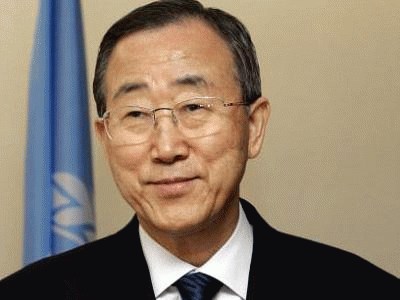Reprinted from Palestine Chronicle
Ban Ki-moon's second term as UN secretary-general is ending this December, he was the most ideal man for the job as far as the United States and its allies are concerned.
Of course, there will always be other Ban Ki-moons. In fact, the man himself was a modified version of his predecessor, Kofi Annan.
The unspoken but unmistakable rule about UN secretary-generals is that they must come across as affable enough so as not to be the cause of international controversies, but also flexible enough to accommodate the US' disproportionate influence over the United Nations, particularly the Security Council.
At the end of their terms, the "success" or "failure" of these secretaries has been largely determined by their willingness to play by the aforementioned rule: Boutros Boutros-Ghali had his fallout with the US, as did Kurt Waldheim. But both Annan and Ban learned their lessons well and followed the script to the end of their terms.
It would be utterly unfair to pin the blame for the UN's unmitigated failure to solve world conflicts or obtain any real global achievement on a single individual. But Ban was particularly "good" at this job. It would be quite a challenge to produce another with his exact qualities.
His admonishment of Israel, for example, can come across as strong-worded and makes for a good media quote, yet his inaction to confront Israel's illegal violations of numerous resolutions passed by the very UN he headed, is unmatched.
Even his purportedly strong words of censure were often cleverly coded, which, ultimately, meant very little.
When Israel carried out its longest and most devastating war on Gaza in the summer of 2014, a large number of international law experts and civil society organizations signed a letter accusing the UN chief of failing to clearly condemn Israel's unlawful action in the Occupied Territories, its targeting of civilian homes and even the bombing of UN facilities which killed and wounded hundreds.
The signatories included former UN Special Rapporteur Richard Falk who, along with the others, called on Ban to either stand for justice or resign. He did neither.
The signatories criticized him, specifically, about the Israeli shelling of a school managed by the UN agency for Palestinian refugees (UNRWA), in which ten civilians were killed.
In his "condemnation" of the Israeli attack, Ban even failed to mention Israel by name as the attacker, and called on "both parties" to provide protection for Palestinian civilians and UN staff.
"Your statements have been either misleading, because they endorse and further Israeli false versions of facts, or contrary to the provisions established by international law and to the interests of its defenders, or because your words justify Israel's violations and crimes," they wrote.
And they were right. This is Ban Ki-Moon's signature policy -- his ability to sidestep having to criticize Israel so cleverly (and, of course, the US and others) when that criticism could have, when needed most, at least given a pause to those who violate international law at will.
Considering this, many have perceived Ban's farewell speech at the 71st session of the UN General Assembly on 15 September as a departure from his old reserved self. It was understood that it was the end of his term and he was ready to show some backbone, however belatedly. Sadly, this was not the case.
(Note: You can view every article as one long page if you sign up as an Advocate Member, or higher).





